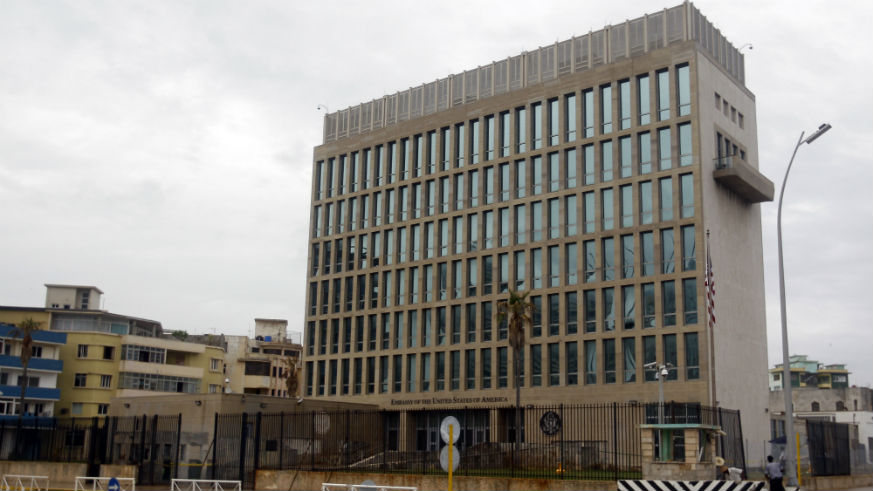The mysterious “sonic attacks” that caused neurological damage in U.S. diplomats in Cuba and China, puzzling officials for months, were likely carried out by Russia.
For 18 months beginning in late 2016, 26 diplomats living in U.N. housing in Havana reported nausea, headaches and hearing loss, along with hearing strange sounds similar to insects buzzing or metal scraping. The U.S. removed dozens of diplomats from Cuba and investigated, suspecting a sophisticated sonic weapon. This June, similar attacks were reported by U.S. diplomats in China, forcing the evacuation of some from the consulate in Guangzhou.
But teams of investigators and scientists were mystified. It was determined that sound waves couldn’t have caused the diplomats’ brain injuries. Under a cloud of suspicion, Cuba and China claimed they had no involvement.
Now, intelligence suggests that Russia was responsible, NBC News reported today. Communications intercepted by the FBI, CIA and other agencies point to Russia’s use of an electromagnetic or microwave weapon, possibly in conjunction with other technologies. The information is not conclusive, and investigators have not determined a motive.
But the U.S. is clearly calling the incidents “attacks.”
State Department spokeswoman Heather Nauert said the investigation was still ongoing and that the U.S. has “made no determination on who or what is responsible for the health attacks.”
Ambassador Peter Boode, head of the task force responding to the incidents, testified before Congress last week. He said, “The State Department has come to the determination that they were attacks.”
Russian President Vladimir Putin has made it a goal to weaken alliances between the U.S. and other nations. He has long wanted the U.S. out of Cuba, where a formal diplomatic relationship was established at the end of the Obama administration, along with opportunities for American investment. Putin has also desired to drive a wedge between the U.S. and China, to improve Russia’s trade relationship with the Asian nation.
If Russia is responsible, it will increase pressure on President Trump to respond punitively. He has been reluctant to penalize Putin — refusing to implement sanctions passed near-unanimously by Congress to punish Russia for interfering in the 2016 election — or even to criticize him.


























